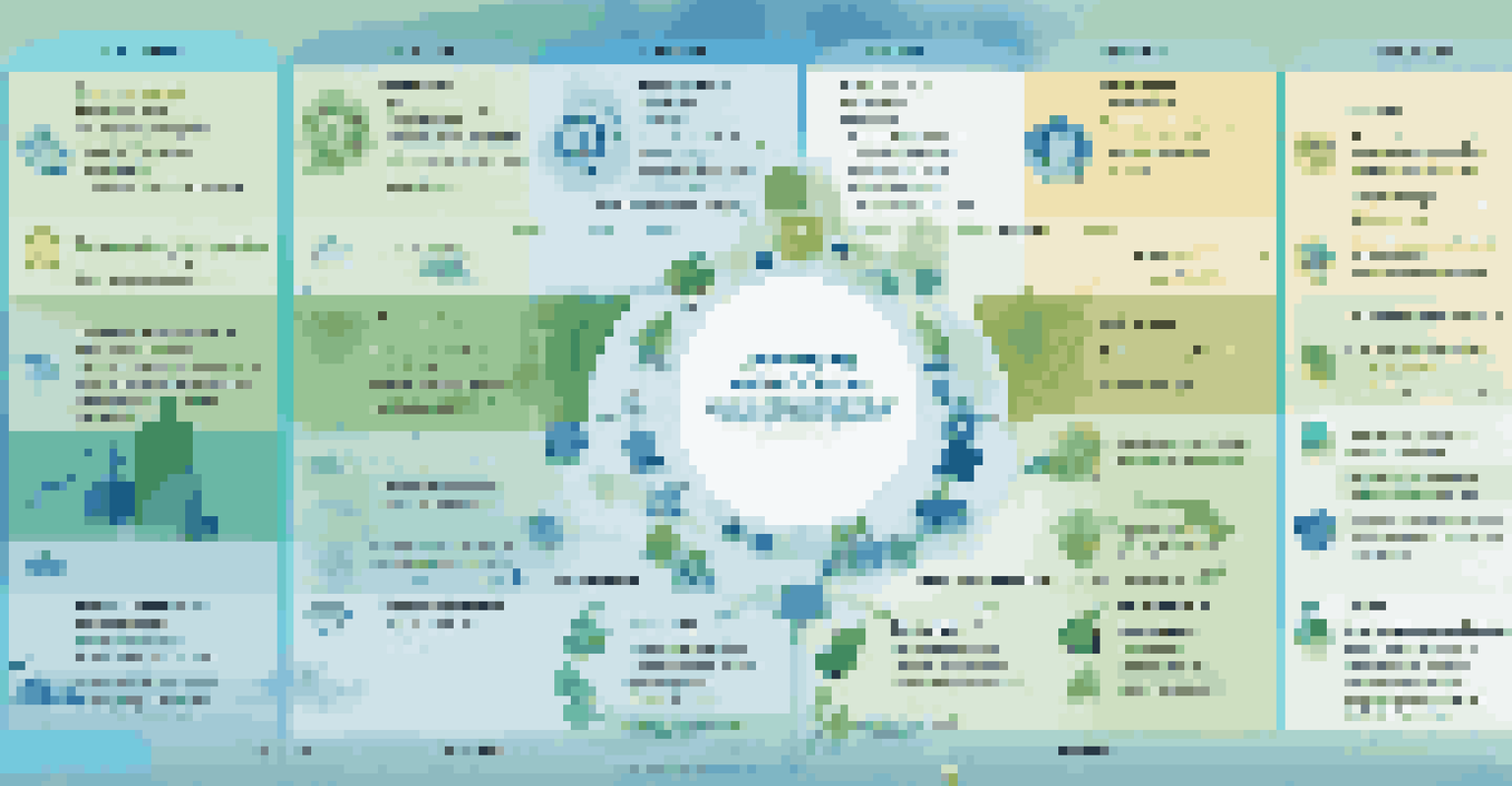Critical Thinking Frameworks for Effective Problem Solving

Understanding Critical Thinking and Its Importance
Critical thinking is the ability to analyze facts to form a judgment. It’s essential in problem-solving because it helps you assess situations logically rather than emotionally. By honing your critical thinking skills, you become more adept at identifying problems clearly and evaluating possible solutions.
The ability to think critically is the foundation of all decision-making.
Imagine trying to fix a leaky faucet without knowing where the water is coming from. Without critical thinking, you might just slap on a patch, only to find the leak persists. This process of evaluating and understanding the root cause is what makes critical thinking invaluable in everyday problem-solving.
Ultimately, critical thinking empowers you to make informed decisions, leading to more effective solutions and better outcomes in both personal and professional settings.
The Role of Frameworks in Problem Solving
Frameworks provide structured approaches to tackling complex issues. They serve as blueprints, guiding you through the problem-solving process step by step. Just like a recipe in cooking, frameworks help ensure you don’t miss any crucial ingredients necessary for the final dish.

When faced with a problem, having a framework allows you to systematically break it down into manageable parts. For example, using the '5 Whys' approach, you can repeatedly ask 'why' to drill down to the root of the problem. This prevents superficial fixes and promotes deeper understanding.
Importance of Critical Thinking
Critical thinking enables logical analysis and informed decision-making in problem-solving.
Incorporating frameworks into your problem-solving toolkit helps streamline your thought process, making it easier to navigate challenges with confidence and clarity.
Popular Critical Thinking Frameworks to Consider
Several frameworks can enhance your critical thinking capabilities. One widely recognized model is the 'IDEAL' framework, which stands for Identify, Define, Explore, Act, and Look back. Each step prompts you to methodically address problems, ensuring no stone is left unturned.
Critical thinking is the key to creativity in problem-solving.
Another effective framework is 'SCAMPER', which stands for Substitute, Combine, Adapt, Modify, Put to another use, Eliminate, and Reverse. This creativity-focused approach encourages you to think outside the box and explore unconventional solutions.
By familiarizing yourself with these frameworks, you can choose the one that best suits your style and the specific problem at hand, optimizing your approach to finding solutions.
How to Apply Frameworks in Real-World Scenarios
Applying a critical thinking framework begins with clearly defining the problem. Take a moment to step back and ensure you understand the issue at hand. For instance, if a project is falling behind schedule, the first step might be to gather data on team performance and resource allocation.
Next, utilize the chosen framework to analyze the situation. If you're using the 'IDEAL' framework, you would explore potential causes and solutions, weighing the pros and cons of each. This careful examination can reveal insights you might not have considered initially.
Frameworks Enhance Problem-Solving
Utilizing structured frameworks like IDEAL and SCAMPER simplifies complex issues and promotes deeper understanding.
Finally, act on your findings, implement solutions, and revisit the problem afterwards to assess effectiveness. This continuous loop of evaluation and adjustment is what makes frameworks such powerful tools in problem-solving.
Common Pitfalls in Critical Thinking
Even seasoned critical thinkers can fall into common traps. One of these is confirmation bias, the tendency to seek out information that supports your existing beliefs while ignoring contradictory evidence. This can lead to poor decision-making and ineffective solutions.
Another pitfall is overcomplicating the problem. Sometimes, a straightforward approach is all that’s needed. Think of it like simplifying a complex recipe; often, the simplest dishes are the most satisfying and effective.
Recognizing and addressing these pitfalls is crucial for maintaining clarity and objectivity throughout the problem-solving process, allowing you to arrive at sound conclusions.
Enhancing Your Critical Thinking Skills
Improving your critical thinking abilities is an ongoing journey. Regular practice, such as engaging in discussions, reading diverse viewpoints, and challenging your assumptions, can sharpen your skills. Think of it like exercising a muscle; the more you use it, the stronger it becomes.
Participating in workshops or online courses can also provide structured learning experiences. Many organizations offer programs specifically designed to enhance critical thinking, which can be highly beneficial.
Continual Skill Development
Regular practice and structured learning are essential for enhancing critical thinking skills over time.
Ultimately, investing time in developing your critical thinking skills will pay off in every aspect of life, from personal dilemmas to professional challenges.
The Future of Critical Thinking in Problem Solving
As we advance into a more complex world, critical thinking will only become more essential. The ability to sift through vast amounts of information and discern what’s relevant will be invaluable. In a way, it’s akin to navigating a crowded marketplace, where you need to identify the best options amidst the chaos.
Moreover, technology continues to evolve, presenting new challenges and opportunities that require sharp critical thinking skills. Whether it's analyzing data or making strategic decisions, being equipped with these skills will prepare you for whatever lies ahead.

By embracing critical thinking frameworks and continually refining your skills, you can ensure that you’re ready to tackle future problems with confidence and clarity.